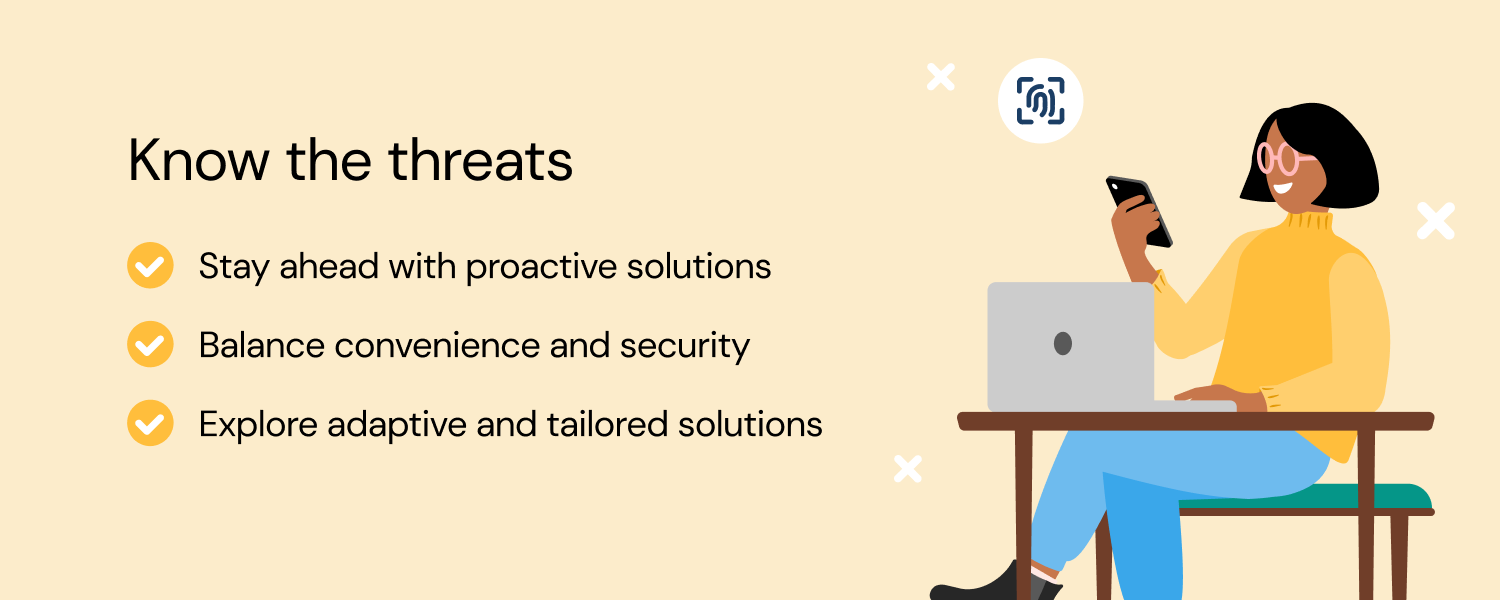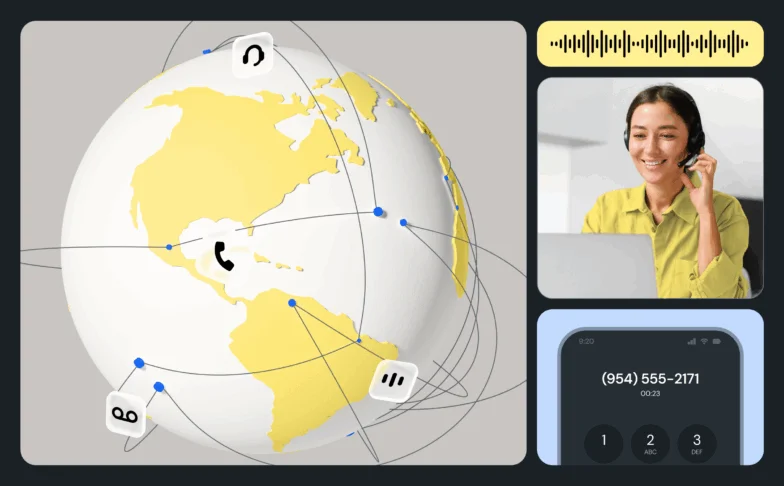Insights
Online identity fraud: Trends and predictions

We all have a twin — not the kind that shares your birthday, but a digital twin living online. This online doppelganger is a crucial part of our lives, helping us connect, work, and shop. But just like us, our digital other can fall into the wrong hands. It’s where online identity fraud comes into play.
Come with us, if you dare, as we take a deep dive into the world of online identity fraud, explore what’s on the horizon, and discuss how we at Sinch can help keep your digital twin safe and sound.
Getting to know online identity fraud
What is online identity fraud?
Online identity fraud is when someone takes on the identity of someone else online. It can take many forms, from credit card fraud to stealing someone’s entire online persona. It’s a sneaky crime using the cover of the internet and sophisticated hacking techniques to trick both individuals and businesses.
The fallout from online identity fraud
When online identity fraud strikes, the fallout can be severe. For businesses, it can lead to:
- Loss of customer trust
- Financial penalties
- Potential legal repercussions
For individuals, the impact can include:
- Loss of funds
- Damage to credit scores
- Emotional distress from dealing with identity theft
The here and now of online identity fraud
The rise of online identity fraud
Online identity fraud has been climbing the charts in recent years. According to a report by Javelin Strategy & Research, identity fraud hit a record high in 2020, affecting 13 million consumers (about twice the population of Arizona) in the U.S. alone. Fraudsters’ craftiness and the increasing amount of personal data available online contribute to this rise.
The need for a game plan
These alarming statistics highlight the growing threat of online identity fraud and the urgent need for a strategy to fight back. Businesses and individuals need to be proactive in protecting their digital identities, using a mix of technology, education, and vigilance. See below for more details on how to protect online identities against identity fraud.

What’s next for online identity fraud?
The changing face of fraud
As technology evolves, so do the tactics of fraudsters. We’re seeing an uptick in the sophistication of online identity fraud techniques, including the use of artificial intelligence and machine learning to sneak past security measures.
The double-edged sword of new tech
Emerging technologies like blockchain and biometrics are exciting for their potential to boost security. But they can also open new doors for fraud if not implemented correctly. For instance, while biometrics can offer top-notch security, they can also be vulnerable to spoofing attacks if not properly secured.
Future predictions for online identity fraud
As we look to the future, the landscape of online identity fraud is expected to evolve and potentially intensify. With our lives becoming increasingly digitized, the opportunities for fraudsters multiply. The continuous advancement of technology may also give birth to novel forms of fraud we must be prepared to confront.
However, it’s crucial to note the same technology presents challenges and also offers robust solutions. Emerging technologies provide stronger identity verification methods making it increasingly difficult for criminals to penetrate. But this doesn’t mean bad actors won’t try to find other avenues, potentially exploiting physical vulnerabilities instead of technical ones. In this digital age, the weak link is always the target.
Moreover, it’s important to acknowledge that not all end users will opt for stringent identity verification. A less rigorous identity verification process can offer convenience, low risk, and a degree of anonymity many end users appreciate. After all, engaging end users is a critical part of the security equation. But here’s the good news: convenience doesn’t have to equate to compromised security. This is where verification steps in.
The need for adaptive defenses
As the threats morph and evolve, our defenses must keep pace. Proactive solutions, like Sinch Verification, are designed to stay one step ahead of the curve, offering robust verification methods that can adapt to the changing threat landscape.
The role of verification in combating online identity fraud
Verification plays a pivotal role in the battle against online identity fraud. By verifying the identities of users, businesses can ensure only authorized individuals gain access to sensitive information. This not only aids in preventing unauthorized access but also creates a comprehensive record of all transactions, facilitating the detection and investigation of suspicious activities.
In the realm of online identity, convenience and security can coexist. With Sinch Verification, businesses can provide their users with a seamless experience that doesn’t compromise on security. By striking this balance, we can ensure the safety of our online identities amidst the evolving threats.
The many faces of verification
Various methods of verification exist, each with its own strengths and weaknesses. These include:
- Knowledge-based verification: Something the user knows
- Possession-based verification: Something the user has
- Inherence-based verification: Something the user is
The choice of verification method often depends on the level of security required and the user experience desired.
Sinch Verification: Your proactive solution
Meet Sinch Verification
Sinch Verification is a comprehensive solution designed to protect businesses from online identity fraud. It offers a range of verification methods, including SMS, voice, flash calls, and data verification, providing a robust line of defense against fraudsters. With Sinch Verification, you don’t have to choose between security and conversions. We’ve built our solutions with conversion in mind, ensuring a seamless user experience without compromising on security.
Unified Verification API: The all-in-one solution
The Sinch Unified Verification API is a game-changer. It’s a single API orchestrating auto-selection of verification methods and tailbacks with global coverage and high security. Driven by data intelligence, Sinch optimizes verification method selection, drives down costs, and helps customers reduce churn, increase revenue, and improve customer satisfaction.
With the Sinch Unified Verification API, you’re offered:
- Tailored verifications for your specific need and use case
- An optimal mix of channels for good user experience, conversion rate, and cost-efficiency
- Pay-per-use model with no upfront or hidden charges
- Easy and convenient implementation with Sinch building and optimizing the verification flow for you
The future of online identity fraud is uncertain, but one thing is clear: it will continue to be a significant challenge. As threats evolve, so too must our defenses. Proactive solutions like Sinch Verification offer a way to stay ahead of the curve, providing robust verification methods that can adapt to changing threats. By staying informed and taking proactive measures, businesses can protect their online identities and secure their future.
Don’t wait for a breach to happen before taking action. Protect your business and your customers by taking proactive steps against online identity fraud today. Learn more about how Sinch Verification can help secure your online identities and safeguard your future. Contact us today.



